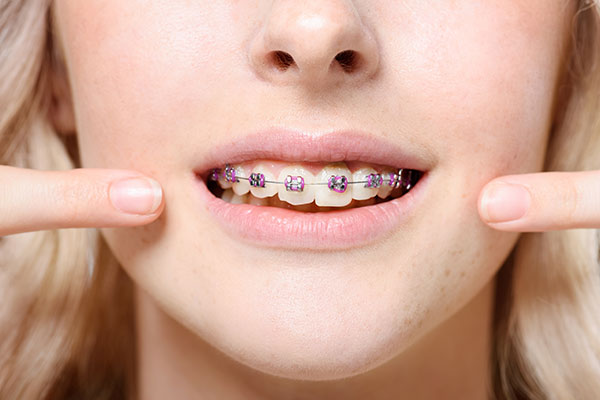
‘Gum Pain With Braces?’ Here’s how to find relief
Braces wearers know all too well that gum pain is a common occurrence. Wearing braces is no picnic. In addition to being itchy and uncomfortable, they can also cause great pain in your gums. The good news is that there are ways to find relief from ‘gum pain with braces.’
This post will give you some tips on how to find relief from gum pain caused by braces. Keep reading for more information!
Braces’ pain is unbearable
Braces are meant to correct your teeth and give you a better smile, but they come with a price- pain. The brackets attached to your teeth with metal wires put pressure on your teeth which can be quite unbearable. While the pain may differ from person to person, it still needs to be addressed.
How do you relieve the pain?
- To alleviate this pain, you can use oral anesthetics to help relieve the pain. These can be applied to your teeth using a finger or swab.
- Ice packs can also be used to reduce pain and inflammation. However, avoid putting ice on your skin – this may cause a burn-freezer. For best results, wrap the ice pack with a towel. You can use the ice packs throughout the day or only apply them during pain.
- Another option is to apply a warm salt water solution. This will reduce inflammation and relieve soreness.
- If a recent movement causes pain, it may be time to take painkiller tablets or apply an oral gel. Read the warning labels before applying the medication because of possible side effects.
If the pain persists, you should consult with your orthodontist, as they may be able to make some adjustments. Braces are worth it in the end, as you will have straighter teeth that you can be proud of.
Oral anesthetics for pain relief
When wearing braces for the first time, your teeth and gums may be sensitive. This is due to the force exerted by the braces. But this usually subsides after about a week. If you are still experiencing gum pain after a week of wearing braces, you can take an oral anesthetic. This gel will numb the area and reduce any pain.
Over-the-counter medications can help you deal with the discomfort of gum pain while wearing braces. These medications contain chemicals that help reduce pain and inflammation. They should be taken with the advice of a doctor. Oral anesthetics are also available and can be applied directly to your teeth. These products can be purchased over-the-counter at most drugstores and can be applied to a specific area of your mouth.
One of the most popular topical anesthetics is Oraqix(r). It contains prilocaine and lidocaine. The medication has been clinically proven to reduce pain associated with orthodontic procedures. This gel was introduced into the gingival crevice and correlated to decreased pain during scaling gingival pockets. The topical anesthetic gel hardened quickly in the mouth when injected into the gingival crevice. Additionally, the application process was painless.
An ice pack for pain relief
Putting an ice pack on the area where you are experiencing gum pain from braces can relieve some pain. You can also drink cold water to numb the area. It’s best to use a cold pack outside your mouth.
Cold compresses help reduce inflammation, a common side-effect of braces. Another option is to use a frozen teething ring. Frozen vegetables are also great for reducing pain. A heated pad can also reduce the swelling caused by braces.
Aside from ice packs, ice cream and popsicles are great ways to relieve soreness and inflammation caused by braces. However, brush your teeth after eating sugary snacks and beverages.
Ice packs on a swollen mouth can also help reduce swelling and pain. Remember not to swallow the ice, as it can harm your teeth. This natural remedy is an excellent alternative to a prescription drug.
Ice water
One of the best ways to reduce gum pain and swelling caused by braces is to drink ice water. Not only is it inexpensive, but it also provides a soothing sensation in the mouth. Sip on ice water at regular intervals throughout the day. You can also sip iced tea or popsicles to relieve soreness.
Besides iced water, you can also use warm salt water to soothe the gums. Using warm salt water to rinse your mouth can also help ease pain and swelling.
Swish with salt water
You may notice that your gums are sore and swollen if you’re wearing braces. This can be a sign of a more serious problem. However, swishing with salt water can ease the discomfort and promote healing. However, it is very important that you not swallow the saline solution.

Swishing with salt water for gum pain with your braces is a great way to reduce mouth sensitivity. Try using a solution of one part salt and one part water. The solution can be gargled several times a day.
Orthodontic wax
If you are experiencing gum pain while wearing braces, orthodontic wax may be able to help. Applied to the affected area, the wax is a hard substance that sticks to your teeth. It is best to apply wax to a clean, dry area. This will prevent bacteria from building up in the wax and make it stick to your teeth. It is also a good idea to replace the wax every two days.
To use orthodontic wax, first find a bracket that is causing discomfort. If the pain persists after you remove the wax, you should seek medical help. You can also try waxing with a toothbrush or your finger. It is important to follow the instructions carefully. If the wax is applied incorrectly, it may not work. Avoid chewing on hot or cold food while using orthodontic wax.
Another option is sugar-free chewing gum, which is a good alternative to wax. This gum is not toxic and can be used as a temporary solution while wearing braces. However, wax differs from chewing gum, and you may need to apply it several times throughout the day.
Good dental hygiene
Keeping your mouth clean is vitally important when wearing braces. This will keep plaque from building up and remove bacteria that can cause problems. Brushing your teeth twice a day for two minutes is ideal, and you should use your dentist’s toothpaste. Brushing with warm salt water can also be beneficial, as it soothes the gums and reduces inflammation. Rinse your mouth with this solution several times a day.
Brushing and flossing can be difficult while wearing metal braces. When brushing, you will find your gums swollen and tender because metal braces can block access to the gum line. Moreover, you may need to use a special floss threader to clean the area underneath the brace. Gum swelling while wearing braces is common, but if it persists, it may be a sign of a more serious problem. If you experience persistent gum swelling, you should contact your dentist or orthodontist for treatment. You may also try taking over-the-counter anti-inflammatory medications, which can help alleviate discomfort.
Another way to relieve gum pain is by adjusting your diet. Eating soft foods and ice creams can help reduce swelling and tenderness.
How long will my gums hurt after getting braces?
It’s not unusual for your gums to be sore for the first few days after getting braces. This is because the brackets and wires are new and may take some time to get used to. You can help ease the pain by rinsing your mouth with a saltwater solution or using an over-the-counter numbing gel. You can ask your orthodontist for a prescription pain reliever if the pain is severe. In most cases, gum pain should go away within a week or two. If your gum pain doesn’t improve or gets worse, it could be a sign of something else, like an infection. Contact your orthodontist right away if you have any concerns.
Do massaging gums help braces?
If you have gum pain with braces, you can do a few things to ease the discomfort. First, try massaging your gums with your fingers. This can help to loosen up the gum tissue and reduce the pain. You can also try using a warm washcloth on your gums for a few minutes each day. If the pain is severe, you may need to see your orthodontist for an adjustment.
Gum pain from braces is incredibly common, but that doesn’t mean it has to ruin your orthodontic experience! By taking good care of your teeth and gums and using some simple home remedies, you can find relief from even the worst cases of gum pain. So don’t despair if your gums are sore—follow these tips, and you’ll feel better in no time!
